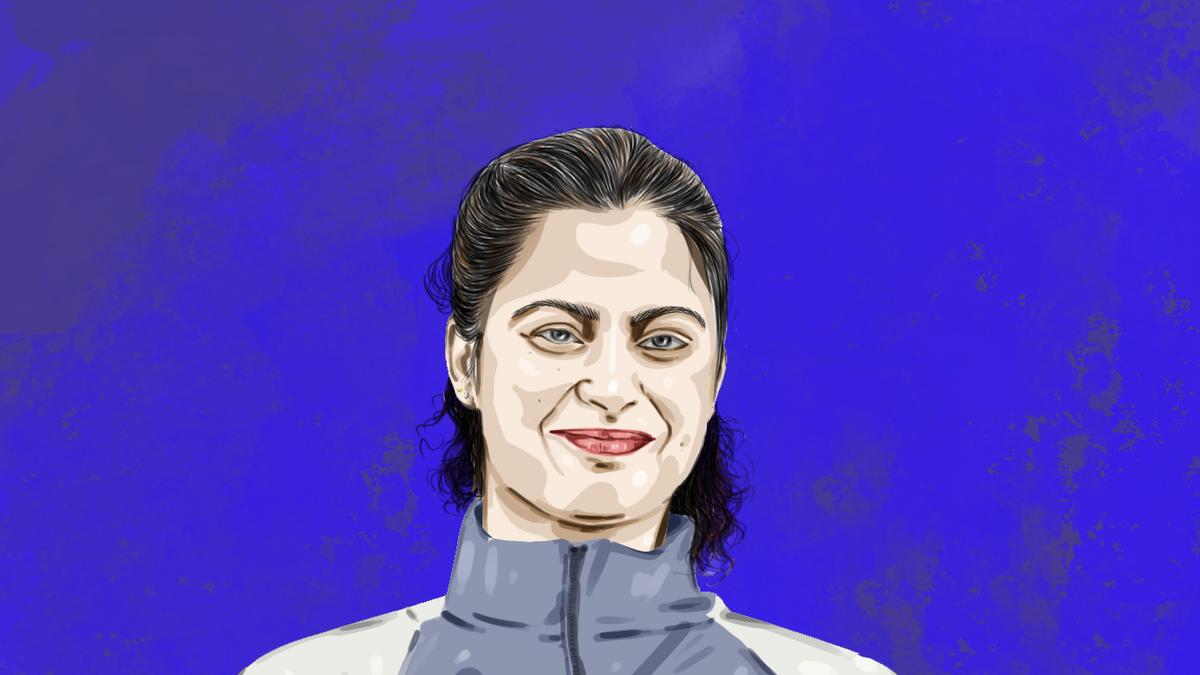
Manu Bhaker. Illustration. Sreejith R. Kumar
Egos are fragile and practically impossible to protect. They are also, far too often, too big to handle and end up causing damage, mostly to their owners. The high-pressure, result-oriented, high-risk, high-reward world of professional sports makes sportspersons susceptible to these pitfalls without seemingly being aware of it.
Nothing exemplifies this better than a complicated coach-athlete combination. And the bigger they are, the more complicated their equation gets. Which is perhaps why the most famous fallouts in the sporting world are often between players and coaches where both have strong personalities.
But when Manu Bhaker created history at the Paris Olympics, reaching the final of all three events she participated in, watched by a certain Jaspal Rana from the stands, it was not just a 22-year-old winning two medals for herself and the country; it was also proof of how tough times never last but tough people do. Manu won the bronze in the women’s 10m air pistol and in the mixed 10m air pistol with Sarabjot Singh, and in the 25m pistol, she finished fourth in the final.
Paris saw Manu register several firsts for Indian shooting — first Indian ever to win twin medals in a single edition of the games; first female Indian shooter to win an Olympic medal, a day after she became the first female shooter to reach an Olympic final in an individual event since Suma Shirur in 2004; first Indian woman to qualify for the 10m air pistol final; first Indian shooter to make three finals at a single Olympics.
To think that, at 22, she is one of the most experienced members of the 21-member Indian shooting squad, is remarkable. More impressive is the way she turned things around, on and off the range, since the disaster at the previous Tokyo Games that was preceded by a fallout with her coach Rana. After that, for two years she tried different coaches and training methods in a desperate attempt to find the missing spark.
When Rana insisted on her dropping out of the 25m sports pistol, a then 19-year old Manu accused him of ignoring her and believed he was doing so to favour another shooter and decided to split. She asked the national federation to intervene just before the Olympics in 2021, he was called a negative influence on the entire pistol squad and Ronak Pandit entrusted with her training less than two months before Tokyo. Her disastrous campaign, which also included an equipment malfunction, was also blamed on Rana, who became an outcast within the Indian shooting fraternity.

The reunion
And then, one fine day in 2023, Manu called him, realising what she needed was not a coach but a mentor, with the duo agreeing both sides were at fault and to not talk about Tokyo ever. Rana believes she has matured as an athlete but the word most people in the fraternity use now is ‘thehrav’ or stillness.
Shooting was never Manu’s first love. Belonging to Jhajjar in Haryana, Manu excelled at tennis, skating and boxing in school before deciding to try her hand at shooting at 14, soon after Rio Olympics. Then, at the 2017 National Championships, she stunned former world No. 1 Heena Sidhu en route to winning nine gold medals, followed by golds at the 2018 Commonwealth Games and the ISSF World Cup at 16. But it was at the 2018 Asian Games, where Manu impressed in the qualifying rounds but faltered in the finals, that things started going downhill.
Meanwhile, Rana’s famous tough training regimen ruffled feathers. Part of the national coaching set-up and in-charge of the junior shooters, Rana oversaw the rise of the likes of Anish Bhanwala and Sourabh Chaudhary besides Manu, a generation of brilliantly talented youngsters, but they all walked out eventually, unable to stick to his tough demands.
She was still a peppy teen in Tokyo but by then she was famous. There were reports of her walking out of the training camp at Bhopal with her brother after a disagreement with Rana. At the beginning of 2023, the shooter walked around in a T-shirt emblazoned with a snarky message that reportedly came from her mother at the Karni Singh shooting ranges in Delhi. It left no one in doubt about how bad things had turned between the coach and his star pupil.
Finally at the Chateauroux shooting range in France, a former military camp, peace and glory reigned. The silent bonding between Manu and Rana, sitting in the stands with his notebook, meant that there was a closure to their Tokyo fallout. Paris helped them turn a new leaf, a glorious one at that.


